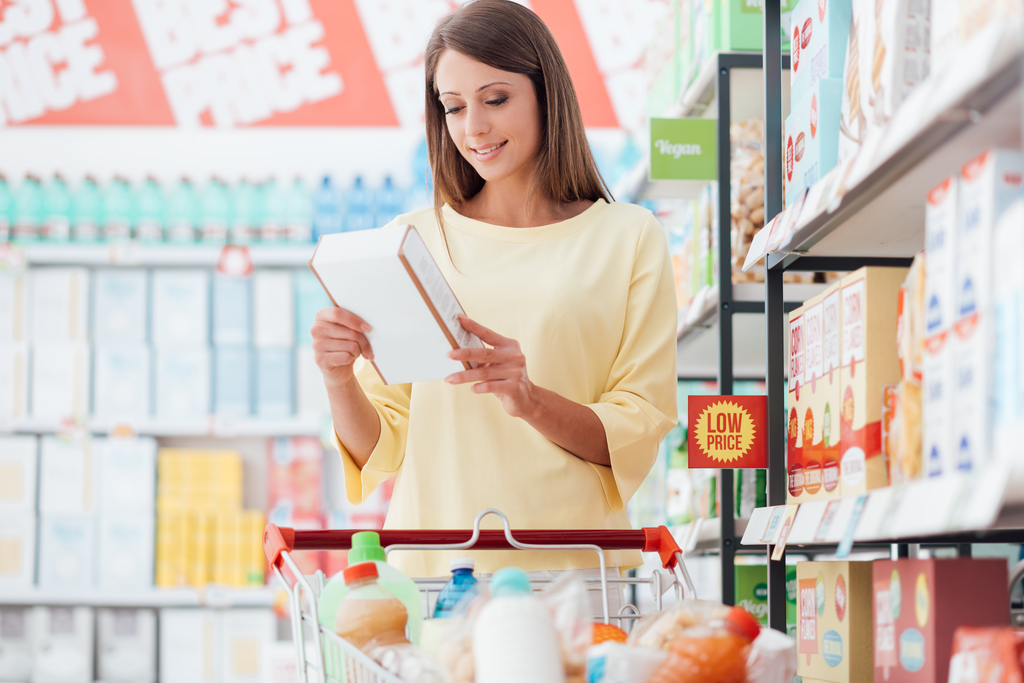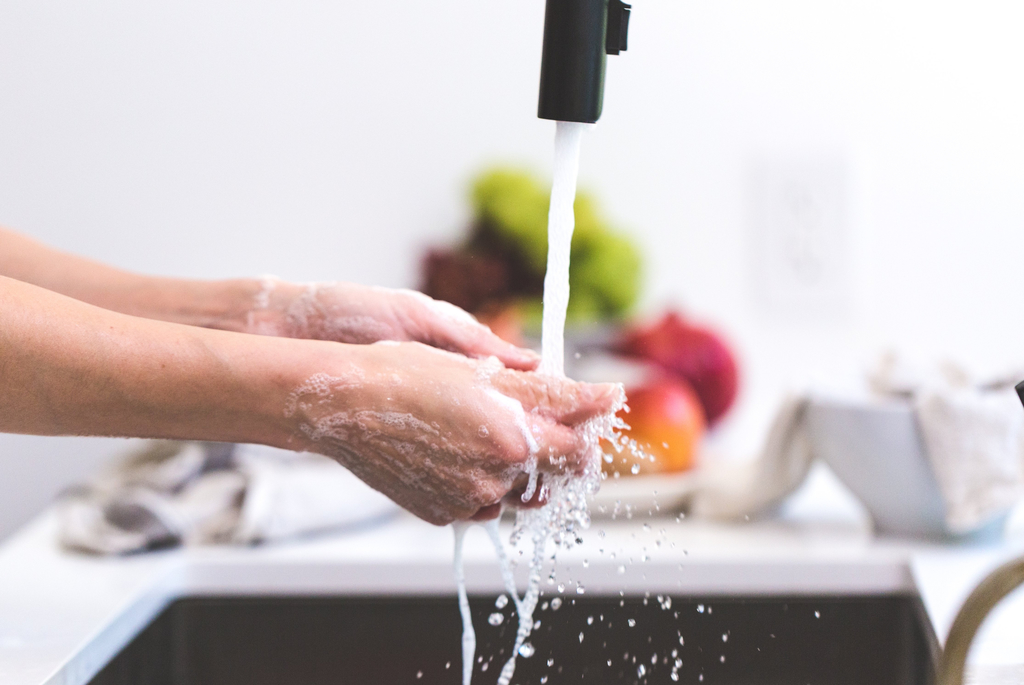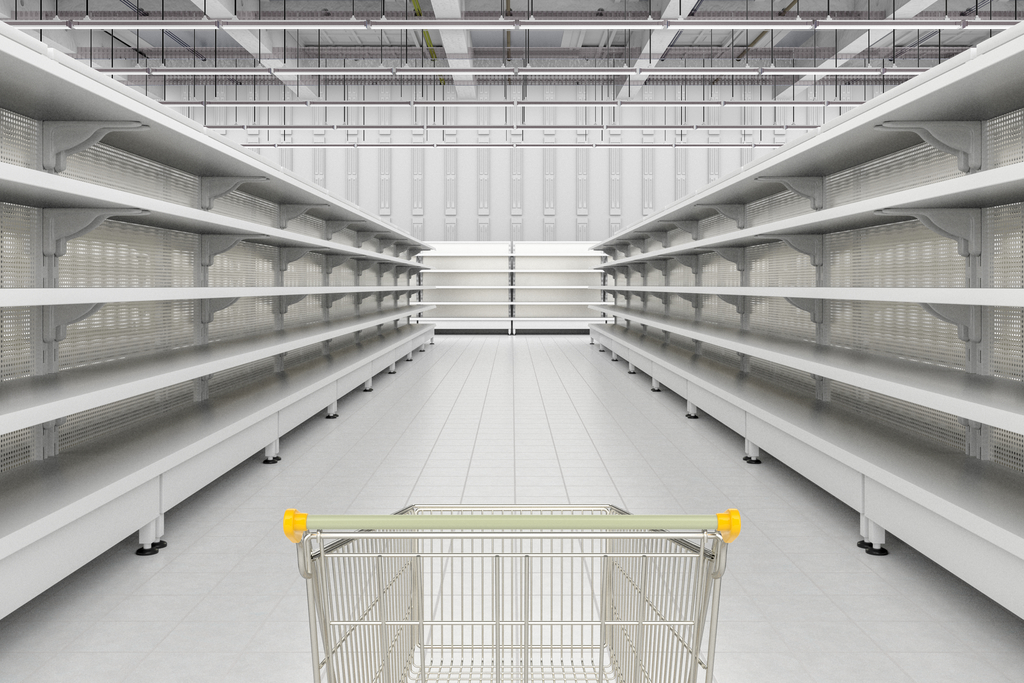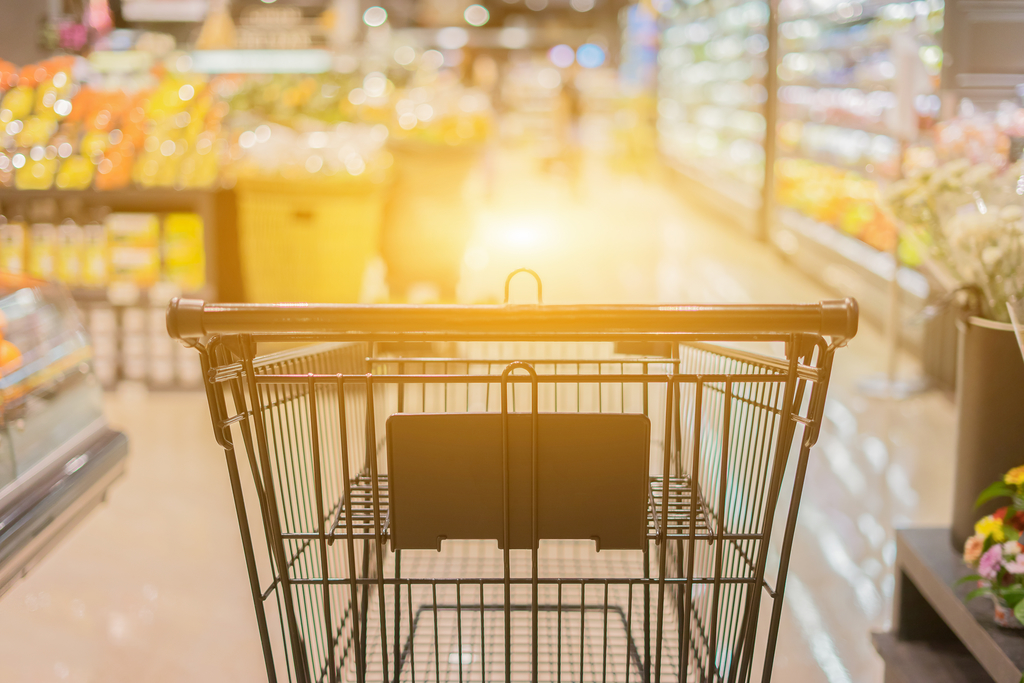What to Buy

Food Items:
You need at least two weeks’ worth of food supply during a quarantine. You can consider buying these items:
Pantry Items:
Canned Goods: Canned goods such as soups and tinned fish have a long shelf life and are easy to store.
Condiments & Sauces: They have long shelf-lives and can be refrigerated after opening to add additional taste to food.
Dry Goods: You can buy pasta, beans, flour, noodles, cereals, instant potatoes, and rice. They have a long shelf life and are good sources of nutrients.
Rice and Grains: Rice and whole grains such as quinoa, farro, and barley can be cooked in bulk and stored and used throughout the week in different kinds of food items such as salads and soups.
Cake mix, biscuit or pancake mix
Cold and hot cereals
Shelf-Stable Milk: Shelf-stable milk has a long shelf life and you can store it easily without it going bad too soon
Snacks: You can munch on snacks such as chips, cookies, and pickled popcorn while you watch TV or read.
Granola bars and protein bars
Garlic and Onions: These can add flavor to your food. They can be stored in cool dry spots with ventilation
Beverages:
Water (if you don’t prefer tap water)
Low-sugar electrolyte drinks
Pre-made protein-shakes or meal-replacement shakes
Powdered drink mixes (hot and cold)
Canned or boxed low-sodium broth
Freezer Items
Frozen Juice Concentrate: These last longer than regular ready juices and can come in handy, especially when you don’t know how long you’re going to be stuck at home for.
Frozen Foods: frozen meats, fruits, and vegetables last longer than fresh ones
Pre-made Meals: Frozen meals can make your life really easy. Store frozen foods such as pizza, nuggets, chicken breasts and patties and reheat and eat meals in case you run out of ingredients or get too sick to cook.
Frozen Treats: Ice cream, popsicles, and other frozen treats can help you feel better when you have been stuck at home for a while and they taste good too!
Let’s face it, some of us just gobble up our snacks in the first few days. Here is a guide on How Not to Eat All Your Quarantine Snacks in the First Two Days.

Personal Hygiene
Consider adding these items to your self-quarantine shopping list for your personal hygiene:
Bar or Liquid Soap: It is important to wash your hands with soap and warm water to get rid of bacteria and virus from your hands to protect yourself
Tissues: Some of the symptoms of COVID-19 are Fever, Cough, and Shortness of breath according to CDC. You should have tissues at home just in case you get sick and need to blow your nose or cover your mouth when coughing.
Toilet Paper: Make sure to stock a few more rolls than you usually need, but please leave some on the shelves for others to buy too. Remember, it is a time of crisis for everyone, so we must look out for others too.
Toiletries and other essentials: Buy enough razors, shaving cream, shampoo, toothpaste, shower gel, mouthwash, etc so that you don’t run out of them during your quarantine time, as it can get very uncomfortable without having these supplies in hand.
Pads/tampons: Stock up on pads and tampons or whatever you use during your period so that you have them in hand when necessary.
Sanitation:
Experts recommend cleaning and sanitizing your home and living areas regularly as the COVID-19 can survive on certain surfaces for 2-3days. You can buy:
Detergent/soap: The CDC recommends to clean dirty surfaces using detergent or soap and water before disinfecting.
Disposable Antibacterial Wipes such as Clorox Disinfecting Wipes to clean your tabletops, counter, doorknob, etc
Disinfectant Spray/Cleaner for bathroom, floors, walls, bathtubs and other fixtures in your home
Disposable Paper Towels
Disposable Gloves: Wear them to protect your hands from the harsh cleaning supplies, and then dispose of them to get rid of any bacteria you might have picked up while cleaning.

Medical Supplies/ Pharmacy items:
Call your family physician or local hospital as soon as possible if you think you’ve come in contact with someone carrying COVID-19. You may want to stock up on the following:
First Aid Kit: In case of minor injuries.
Prescription Medications: Try to have at least a 30 day supply of medicine to prepare for quarantine, just in case it gets difficult for you to get a refill from your doctor at a time like this if you need prescription medications.
Pain and Fever Relievers: The CDC states that COVID-19 symptoms include high fever and other flu-like symptoms. It is a good idea to keep fever reducers such as Tylenol and Aspirin instead of anti-inflammatories such as ibuprofen, since Anti-inflammatories may aggravate Covid-19, according to a source.
Water Filter Pitchers: In case your local store runs out of bottled water and you don’t prefer tap water
Multivitamins
Children’s fever reducer (if you have kids at home)
Cough medicine
Saline solution
Allergy medicine (like Benadryl and Claritin)

What not to buy
Face Masks (Unless you’re sick or dealing with a sick person): It is a good idea to wash your hands frequently to protect yourself from Coronavirus. Face masks can definitely help to an extent, but there’s no need to buy them in bulk as explained by an expert. Medical professionals and affected people need these face masks more and buying it in bulk means you’re limiting the supply to these people who need it most. It is recommended that you don’t buy a mask unless a medical professional recommends it to you.
Extra Toilet Paper/ Cleaning supplies/ Crazy amount of ANYTHING: Remember, the whole world is panicking right now. If you empty the shelves yourselves, no one else is going to get the supplies they need. Instead, you can spend on a bidet, which countries like Italy, Portugal, Japan, Argentina, Bangladesh, and Venezuela have been using for years. Also, you might be thinking that you’re protecting yourself by hoarding all the hand sanitizers and toilet paper, but that is depriving someone else of getting them. Who knows, that very deprived person might get affected and spread it to someone else, which might come back to you. So be smart, people!
Items you don’t usually use: It is very common to panic and buy items that you don’t usually use, “just in case you need them.” But if you don’t usually use it, there's a high chance you won’t use it now, so it’s a waste of money. Also, buying items such as fake eyelashes in bulk? NOT a good idea. You should be staying indoors and self-isolating, therefore chances of you going out are pretty low, so why buy so many eyelashes, people?
Anti-inflammatory drugs such as ibuprofen and cortisone, as Anti-inflammatories may aggravate Covid-19, according to the French Health Minister, Olivier Véran. Instead, he advises patients to take paracetamol rather than ibuprofen or cortisone.
During this moment of crisis, it is paramount to self-isolate, wash your hands, and to avoid touching your face, eyes, nose, and mouth. You are most likely not going to run out of water and electricity, so there is no need to panic about that. Grocery stores will remain open and you will be able to continually purchase items. Even in hard-hit places like Italy, while there are some restrictions, grocery stores are still open. Just be wise about the number of items you’re buying, don’t buy more than necessary and PLEASE keep others in mind when you shop.




